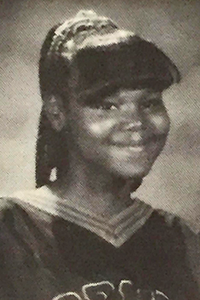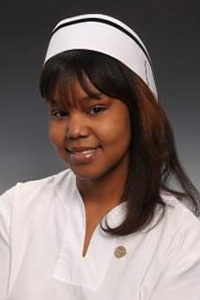The Black Angels: Using Our Past to Empower Our Future
By: Jean Abdul-Zahir, MBA, BSN, RN, CNOR, and Emily McKisson, MS, BSN, RN, CNOR
Published: 2/29/2024
The “Black Angels” refers to a group of African American nurses who played a crucial role in caring for tuberculosis patients in the 1940s, particularly at Seaview Hospital in Staten Island, New York. During this period, tuberculosis, often known as the “White Death,” had no cure and was highly contagious. Patients admitted to hospitals presented with severe lung damage, and treatment was palliative rather than curative.
Complicating matters further, the 1940s were marked by significant civil rights issues, including segregation. In health care facilities, a system of segregation prevailed, with white nurses attending to white patients and African American nurses responsible for African American patients. However, when white nurses refused to care for their white tuberculosis patients, the Black Angels stepped forward.
The dedication of the Black Angels during this challenging time was heroic. They cared for patients irrespective of their racial background, putting their own health at risk. In defying the societal norms of the time, the Black Angels set a powerful precedent for nurses to look beyond skin color and prioritize the care of all patients, regardless of racial differences. Their actions not only contributed significantly to patient care during a health crisis, but also played a role in challenging and breaking down racial barriers in nursing.1-4
Jean-Abdul Zahir’s Story
The Black Angels reminded me once again about how far we have come and how far we must go in the health care profession. The voices and stories of nurses from the 1940s are a powerful reminder of the compassion and dedication of those of us called to the nursing profession. I was raised in a small town on the outskirts of Alliance, Ohio, and was one of the very few African American children in my elementary school. In fact, I believe there were fewer than 10 African American children total from kindergarten to fifth grade and half of the 10 were my family members.
My family moved to Canton, Ohio, once I entered middle school. It was an exciting but very enlightening move for me as Canton had a much more diverse population. I was often challenged by my African American counterparts that I was not “urban” enough or that I talked “proper” due to my previous school setting. I had learned what is now called “code-switching,” also known as social chameleon behavior, where you adjust your behavior and personality to the environment you are in. I learned quickly that showing up as your authentic self was controversial. During elementary school, I tried my best to blend in with my White counterparts and now, in a predominately African American school, I had to pivot by adjusting how I showed up.
My journey to become a nurse began in the seventh grade. The first week of my seventh-grade year, I received a note from the school that my parents had to sign for a scoliosis check by the school nurse. I returned the next day and thought nothing more of it until I walked into the gym and saw the school nurse. Our school nurse was about 5’ 6”, was very pretty, spoke very properly, and was African American. She also shared my last name. When she introduced herself to me, I was in awe and had visible chills. I still remember the ultimate shock that standing before me was an African American nurse, who was extremely nice and smart, and shared my last name. Meeting and seeing Ms. Holston made me believe that I could follow in her footsteps, and I could also be a nurse. I am sure she overcame many challenges to become a successful nurse. To this day, I wonder if she is aware of the impact her just “being” in that role had on myself and others. I had no idea that I could one day be a nurse, let alone a nurse leader.


Jean Abdul-Zahir, MBA, BSN, RN, CNOR, in seventh grade and now as a nurse manager.
I often think of Ms. Holston and other African American nurses who have overcome challenges. Their voices have inspired me to not only become a nurse but pursue nursing leadership positions. Further, I understand the importance of giving back to my community, mentoring new surgical nurses, and ensuring I am utilizing diversity and inclusion efforts when hiring. I also ensure that diversity and inclusion efforts are considered when putting policies in place for patient care.
I feel honored to be in a nursing leadership position that enables me to advocate for a health care team that has diverse members. I want to ensure that patients never have to experience “code switching” like I did when I was in middle school. More importantly, I want patients to be treated the same, regardless of the color of their skin or background. I am grateful that the Black Angels role and the lost history of the challenges African Americans have overcome has been shared. Their perseverance and commitment to duty highlight them as trailblazers that paved the way for African American nurses and leaders.
References:
- Ervine HS. Honoring an AORN pioneer during black history month. AORN J. 2022;115(2):121-123.
- Filmmaker to share story of African American nurses who treated TB when no one else would. VCU News. February 6, 2020. Accessed January 28, 2024. https://news.vcu.edu/article/Filmmaker_to_share_story_of_African_American_nurses_who_treated
- Honoring African American contributions in medicine: the Black Angels. Inside Adams. July 8, 2020. Accessed January 28, 2024. https://blogs.loc.gov/inside_adams/2020/07/black-angels/
- Wikipedia. Accessed January 28, 2024. https://en.wikipedia.org/wiki/Tuberculosis

